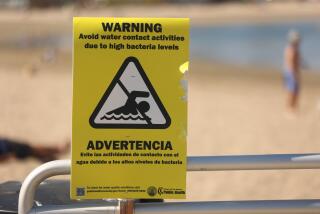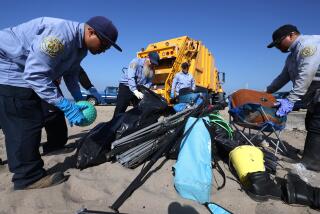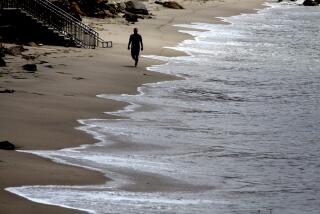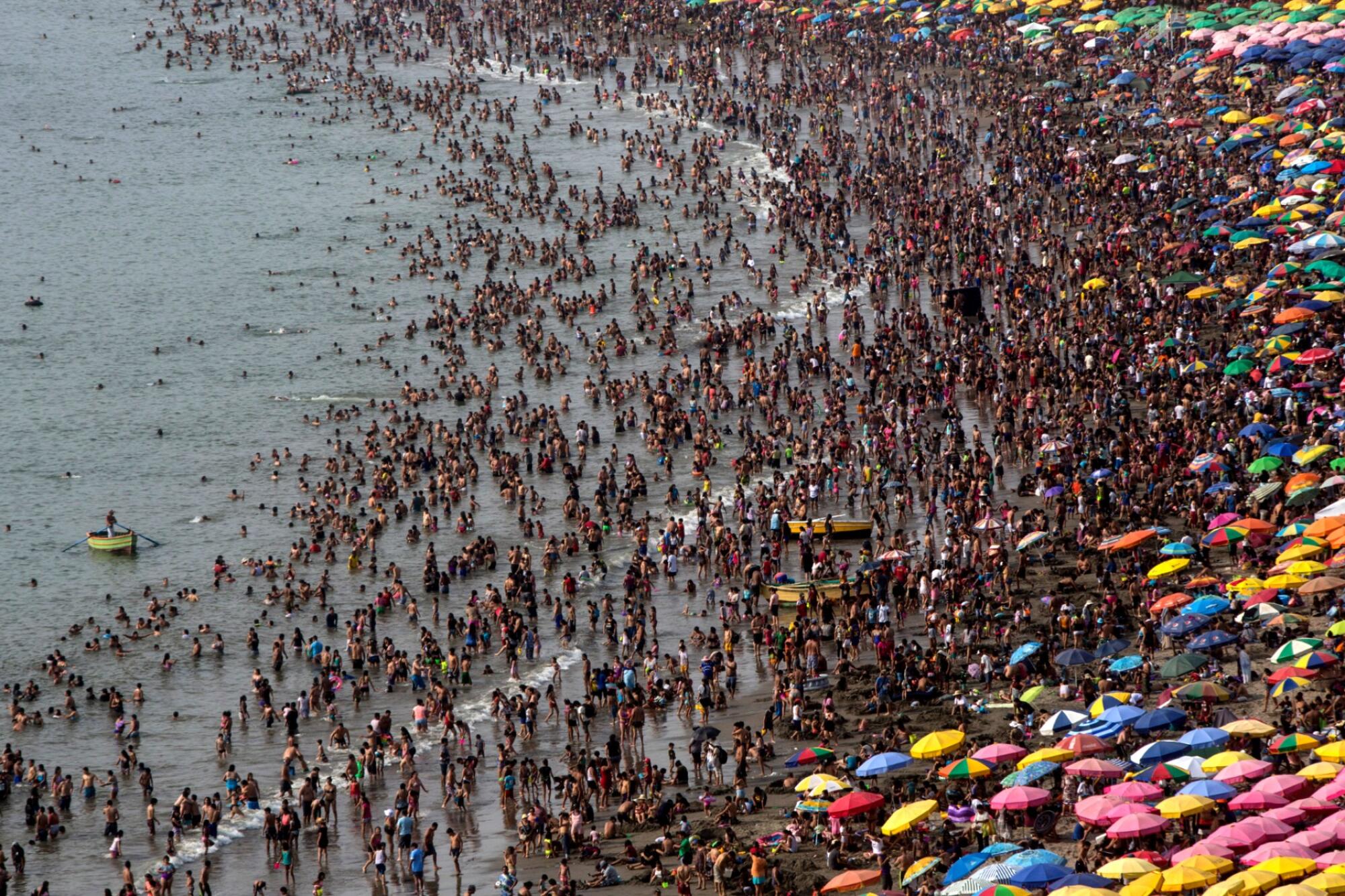
LIMA, Peru — Agua Dulce beach is usually a sea of humanity, packed with as many as 40,000 people a day at the height of Peru’s summer, which runs from December to March.
The coronavirus pandemic has changed all that. Peru’s President Martín Vizcarra declared a state of emergency as deaths began to mount and ordered people to stay home, largely emptying the beach of people.
The half-mile-long strip of grayish-brown sand 12 miles south of central Lima is normally a haven for the working classes, a place where visitors from the Andean highlands first dip a toe in the sea.
With the number of coronavirus patients around the world growing at a rapid clip, construction of hospitals and hospital beds has also ramped up around the world.
But in recent days, an army of seabirds has claimed the sandy territory abandoned by people. Densely thronged pedestrian bridges are all but empty. Instead of being covered with chaotic human footprints, the beach is tattooed with the tracks of gulls and pelicans.
Police officers who recently monitored the beach for unlicensed vendors catering to the crowds now walk along the empty beach to warn off would-be swimmers. Those caught out are usually let go with a warning.
Among the few defying the order was Tomas Cabrera, 86, who sat on a jetty enjoying the rare solitude.
“There are no people in the streets, no cars circulating, no factories running,” he said.
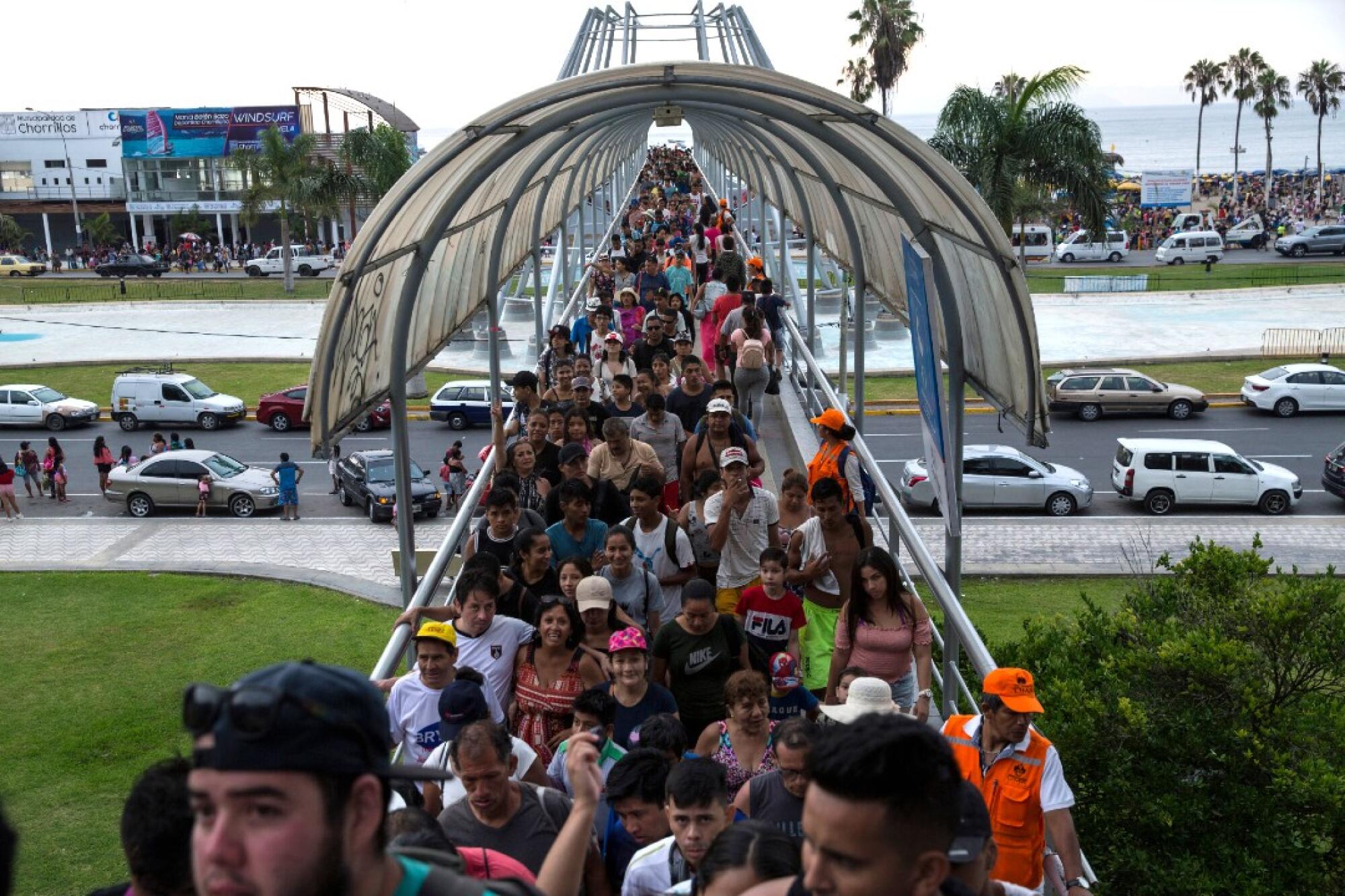
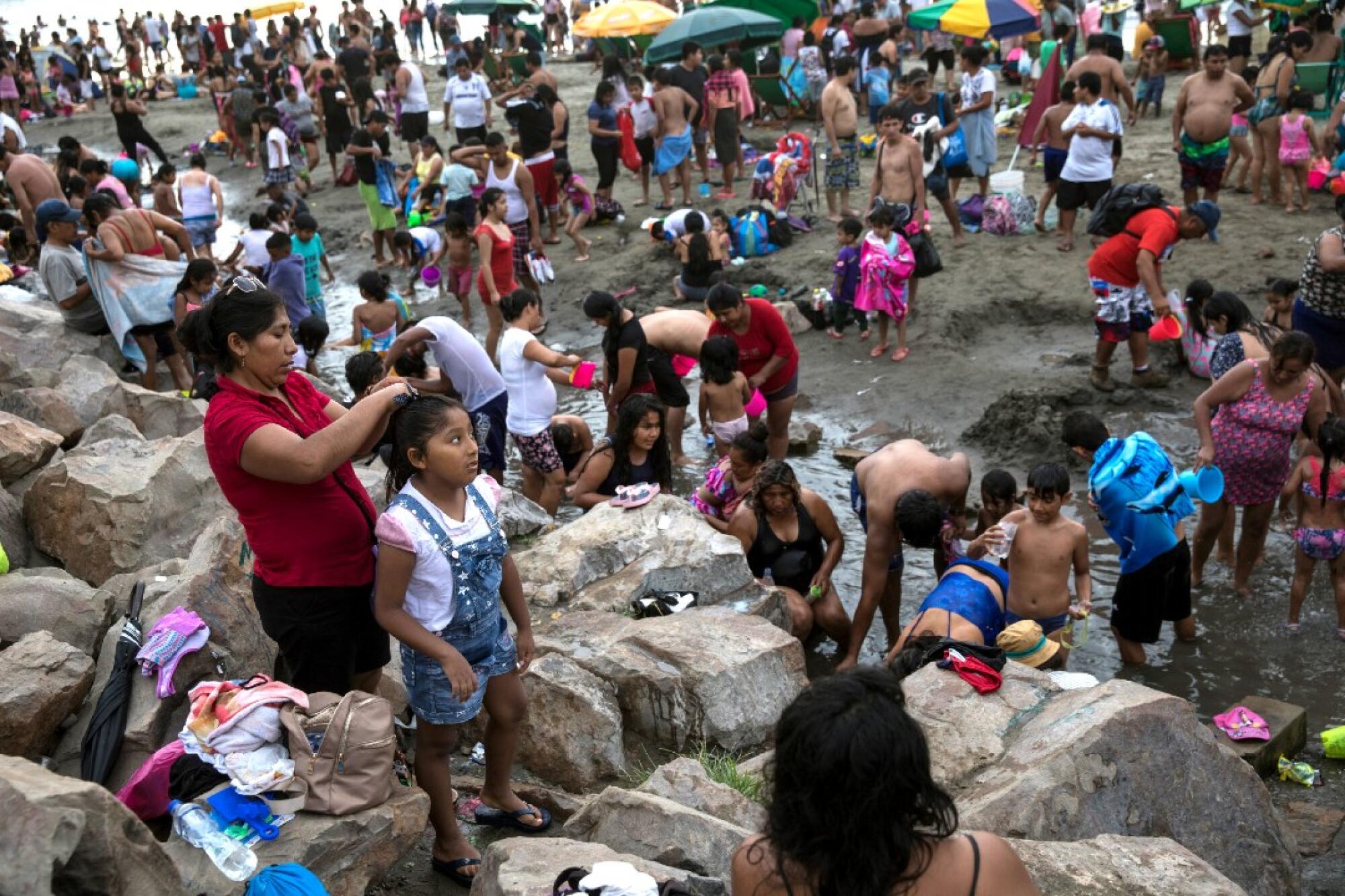
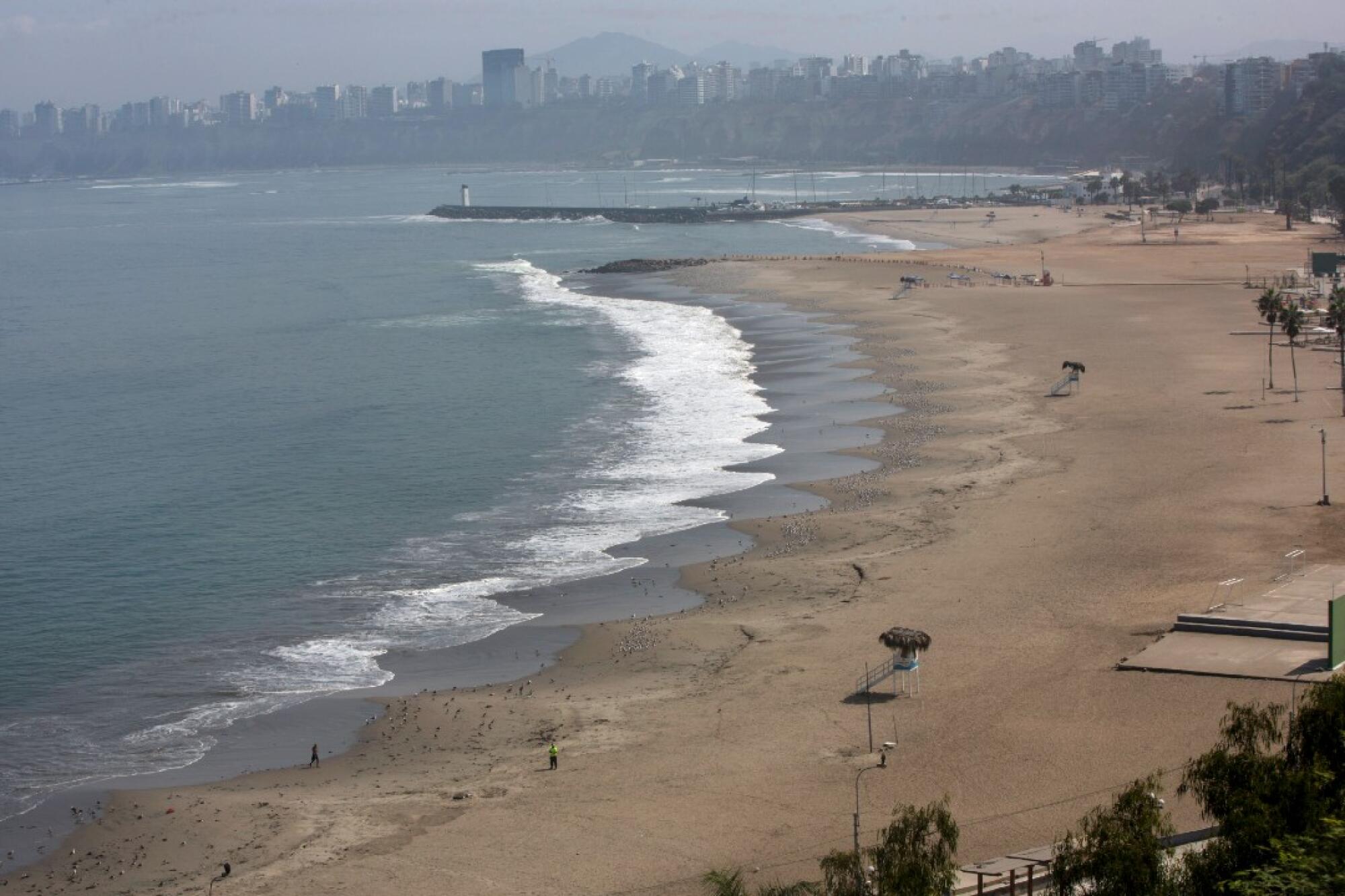
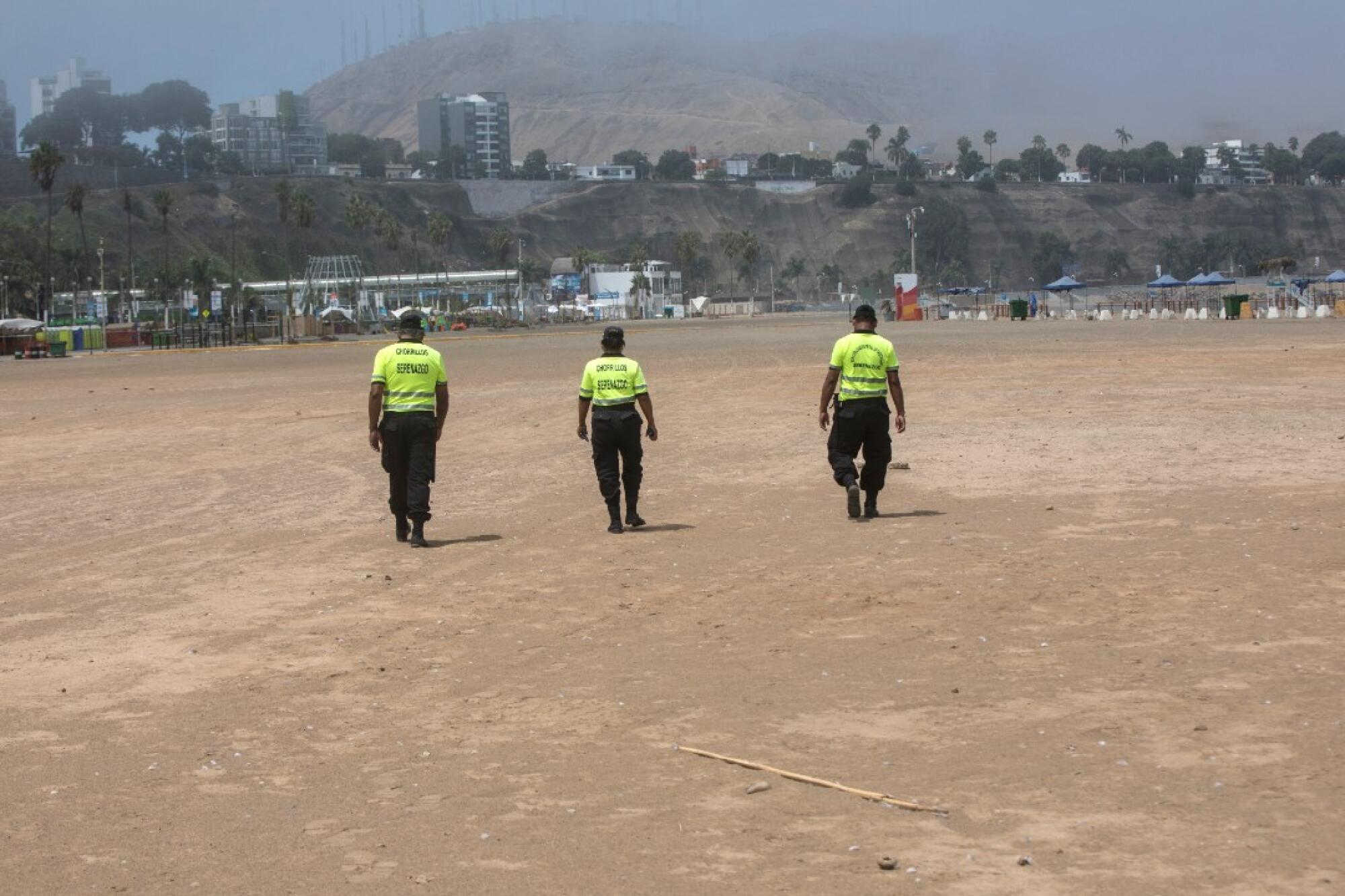
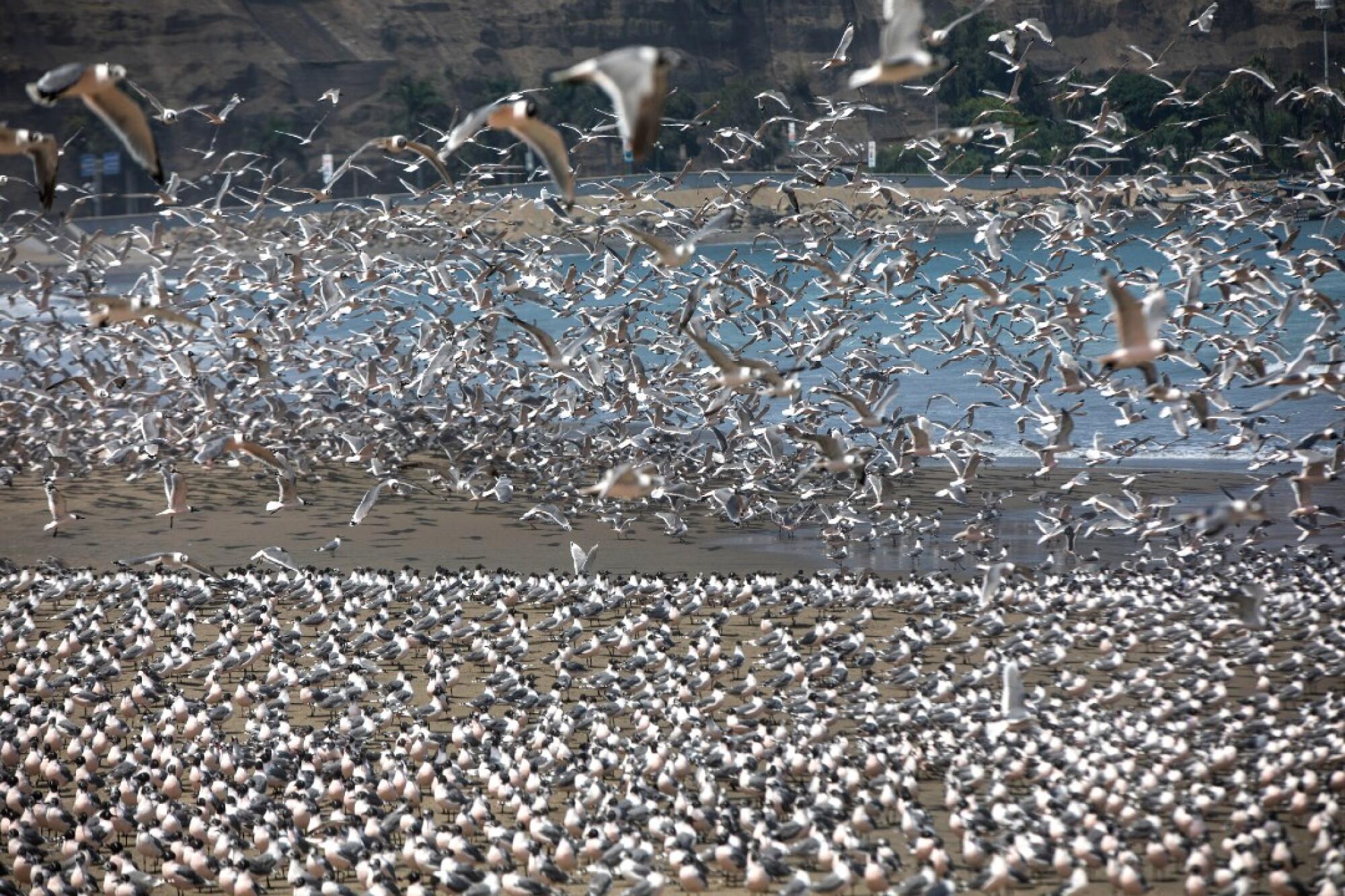
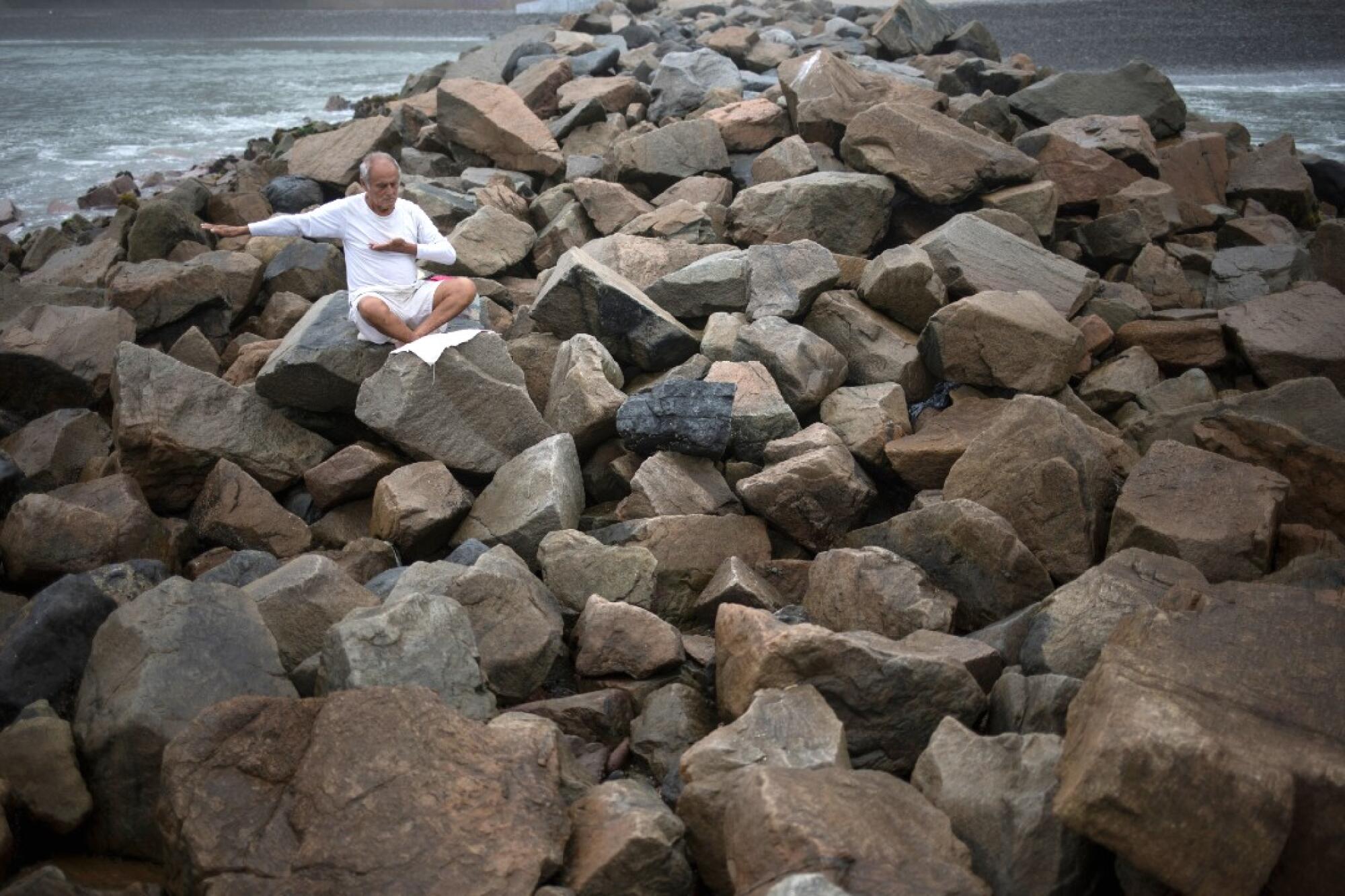
More to Read
Sign up for Essential California
The most important California stories and recommendations in your inbox every morning.
You may occasionally receive promotional content from the Los Angeles Times.

